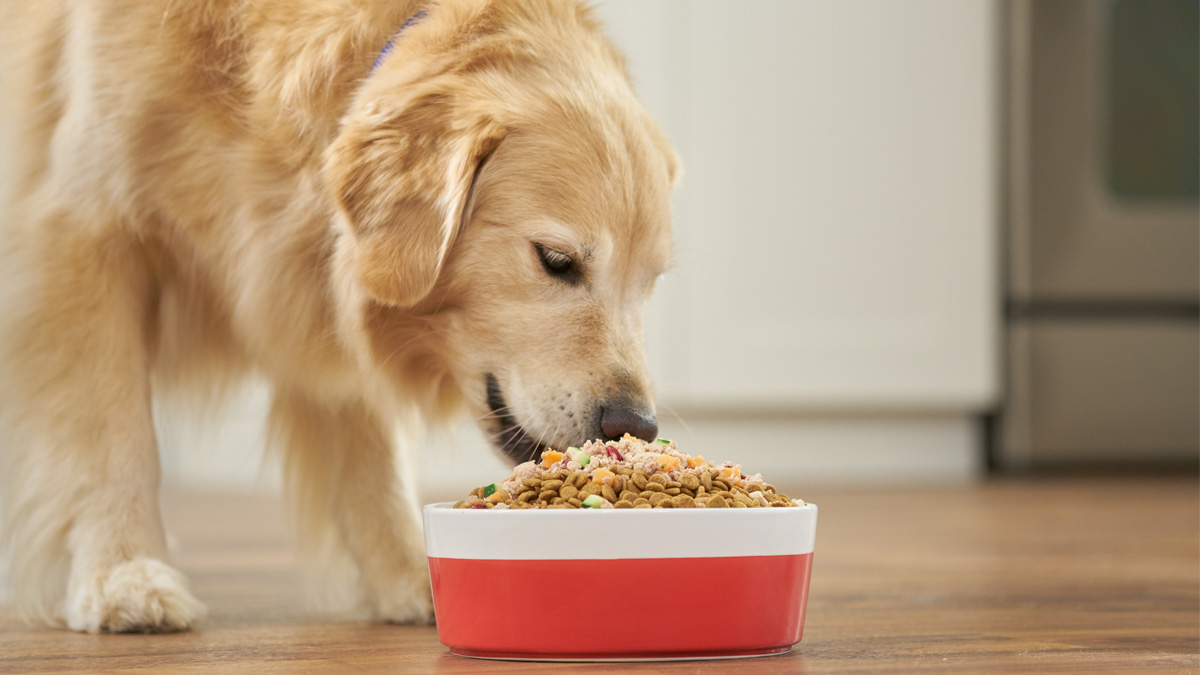The era of “one-size-fits-all” pet food is rapidly drawing to a close. As our understanding of animal biology deepens and technology advances, the concept of personalized pet diets is emerging as the new frontier in animal nutrition. This revolutionary approach moves beyond generic formulas to create dietary plans meticulously tailored to an individual pet’s unique genetic makeup, lifestyle, health conditions, and even microbiome. It’s about optimizing every nutrient to support peak health, enhance longevity, and address specific needs with unprecedented precision.
From DNA-based meal plans and custom-blended fresh food deliveries to AI-driven dietary recommendations and advanced supplement protocols, personalized pet nutrition is transforming how we fuel our furry, feathered, or scaled family members. This comprehensive article delves into the compelling drivers behind this nutritional revolution, explores the cutting-edge science and technologies making it possible, highlights the profound benefits it offers, and provides essential guidance for pet owners seeking to unlock their companion’s full health potential through bespoke dietary solutions.
Why Personalized Nutrition Matters

For decades, pet food manufacturers have categorized diets by life stage (puppy, adult, senior) and sometimes by breed size. While a good starting point, this approach often overlooks the vast individual differences among animals. The shift towards personalized pet diets is driven by several critical factors:
A. Pet Humanization: As pets are increasingly viewed as cherished family members, owners demand the same level of individualized care and nutrition they expect for themselves.
B. Scientific Breakthroughs: Advances in genomics, metabolomics, and microbiome research are revealing how individual animals process nutrients differently and what truly optimal health looks like at a biological level.
C. Prevalence of Chronic Conditions: Allergies, obesity, digestive issues, and chronic diseases are rampant among pets. Generic diets often fail to adequately address these complex conditions, necessitating more targeted nutritional interventions.
D. Desire for Longevity and Vitality: Owners want their pets to live longer, healthier, and more active lives. Personalized nutrition holds the promise of achieving this by preventing disease and optimizing cellular function.
E. Technological Enablement: The development of sophisticated diagnostic tools, data analytics, and advanced manufacturing processes makes customization feasible on a larger scale.
F. Sustainability Consciousness: Precision feeding can reduce food waste by ensuring pets receive exactly the nutrients they need, no more, no less, and often incorporates more sustainable ingredients.
These drivers collectively highlight a paradigm shift from mass production to bespoke dietary solutions, designed to meet the intricate needs of each unique pet.
Pillars of Personalized Pet Nutrition
The future of pet nutrition is being built on several interconnected advancements, moving beyond simply modifying existing formulas.
A. Genomic-Based Diets (Nutrigenomics)
This is arguably the most revolutionary aspect, leveraging a pet’s genetic information to guide dietary choices.
- DNA Testing: Genetic tests can identify predispositions to certain health conditions (e.g., specific breed-related diseases, sensitivities to certain ingredients, tendencies towards obesity) or unique metabolic traits.
- Tailored Nutrient Ratios: Diets can be formulated to provide optimal ratios of protein, fat, carbohydrates, vitamins, and minerals that align with an individual pet’s genetic profile and metabolic needs. For instance, a dog genetically predisposed to joint issues might receive a diet highly enriched with joint-supporting nutrients.
- Allergen Avoidance: Identifying specific food sensitivities or intolerances at a genetic level can guide the selection of hypoallergenic ingredients from the outset.
- Optimizing Absorption: Understanding genetic variations can help formulate diets that maximize nutrient absorption and utilization.Impact: Moves from reactive treatment to proactive prevention, mitigating genetic risks through diet.
B. Microbiome-Driven Nutrition
The gut microbiome (the trillions of bacteria, fungi, and other microbes living in the digestive tract) is a “second brain” influencing digestion, immunity, and overall health.
- Fecal Microbiome Testing: Analyzing a pet’s stool to map the specific composition and diversity of their gut bacteria.
- Targeted Prebiotics and Probiotics: Diets can be formulated with specific prebiotics (fibers that feed beneficial bacteria) and probiotics (live beneficial bacteria) to rebalance an imbalanced gut microbiome, addressing issues like chronic diarrhea, inflammatory bowel disease, or even anxiety.
- Dietary Fiber Modulation: Adjusting the types and amounts of dietary fiber to promote the growth of beneficial gut bacteria and support digestive health.Impact: Revolutionary for managing chronic digestive issues, bolstering immunity, and potentially influencing mental well-being.
C. Real-Time Data Integration and Smart Feeding
Leveraging technology to continuously monitor a pet’s needs and adjust their diet accordingly.
- Smart Feeders with Integrated Scales: Accurately measure food dispensed and consumed, providing data on appetite changes and precise caloric intake.
- Wearable Fitness Trackers: Monitor activity levels, sleep patterns, and energy expenditure. This data can be fed into algorithms that automatically adjust calorie recommendations in real-time based on how active a pet has been.
- Remote Monitoring by Veterinarians: Data from smart devices shared with vets allows for continuous dietary management and early detection of changes that might indicate illness or a need for dietary adjustment.
- AI-Powered Recommendations: Artificial intelligence can analyze vast datasets (genetic info, activity, microbiome data, health records) to provide highly personalized dietary recommendations and flag potential issues.Impact: Moves from static feeding schedules to dynamic, responsive nutrition.
D. Fresh, Human-Grade, and Minimally Processed Formulations
The demand for high-quality, recognizable ingredients, often cooked gently or served raw, continues to grow.
- Custom-Blended Fresh Food Services: Companies offering personalized recipes formulated by veterinary nutritionists, delivered pre-portioned and ready-to-serve. These can be adjusted based on evolving needs.
- Raw Diets: Tailored raw diets (BARF or whole prey) based on a pet’s specific requirements, balanced for complete nutrition (crucial for safety).
- High-Pressure Processing (HPP): A non-thermal pasteurization method for fresh/raw foods that eliminates pathogens while preserving nutrients, enhancing safety.Impact: Offers superior digestibility, palatability, and nutrient bioavailability compared to heavily processed kibble, while allowing for precise ingredient control.
E. Advanced Nutraceuticals and Supplements
Integrating specific bioactive compounds into diets or as standalone supplements to target specific health goals.
- Targeted Joint Support: Personalized blends of glucosamine, chondroitin, MSM, green-lipped mussel, and other anti-inflammatory ingredients.
- Cognitive Support: Specific fatty acids (DHA, EPA), antioxidants, and compounds like MCTs for aging pets or those predisposed to cognitive decline.
- Skin and Coat Health: Precise ratios of omega fatty acids, biotin, and other nutrients for pets with dermatological issues.
- Novel Immune Modulators: Ingredients that precisely support or modulate the immune system based on a pet’s health status.Impact: Provides a therapeutic edge, allowing diets to address specific health challenges beyond basic sustenance.
F. Sustainable and Novel Protein Sources
While previously discussed for their environmental benefits, these also play a role in personalization, especially for pets with sensitivities.
- Hypoallergenic Options: Insect proteins, cultivated meat, or specific plant-based proteins offer novel choices for pets with allergies to common proteins like chicken or beef, making highly personalized exclusion diets possible.
- Ethical Considerations: Allows owners to choose protein sources that align with their ethical values (e.g., lab-grown for animal welfare, insect-based for low environmental impact) while still meeting their pet’s specific nutritional requirements.Impact: Broadens the palette of available ingredients for truly unique dietary formulations.
The Transformative Benefits of Personalized Pet Diets

Embracing tailored nutrition offers profound advantages for pets, their owners, and the veterinary community.
A. Optimized Health and Longevity
By precisely meeting an individual pet’s needs, personalized diets can:
- Prevent Disease: Mitigate genetic predispositions to illness.
- Manage Chronic Conditions: Improve outcomes for existing ailments (allergies, diabetes, kidney disease).
- Boost Vitality: Enhance energy levels, immune function, and overall well-being.
- Extend Healthy Lifespan: Support cellular health and reduce oxidative stress.
B. Addressing Specific Health Concerns Effectively
- Reduced Allergies and Sensitivities: Precise ingredient selection avoids known irritants, leading to clearer skin, better digestion, and reduced discomfort.
- Weight Management Success: Accurate calorie recommendations based on activity and metabolic rate make achieving and maintaining a healthy weight more achievable.
- Improved Digestion: Tailored fiber and probiotic blends can resolve chronic digestive upset.
- Enhanced Mobility: Targeted joint-supporting nutrients can reduce pain and improve function for pets with arthritis.
C. Superior Palatability and Enjoyment
Fresh, human-grade ingredients often result in highly palatable meals that pets eagerly consume, which is especially important for picky eaters or those with reduced appetite due to illness.
D. Reduced Food Waste
Precision feeding ensures pets receive exactly the nutrients they need, minimizing overfeeding and uneaten portions. Using upcycled ingredients further reduces overall food system waste.
E. Deeper Owner Engagement and Peace of Mind
Being actively involved in their pet’s unique dietary plan fosters a deeper bond. Knowing their pet is receiving optimal, tailored nutrition provides immense peace of mind.
F. Data-Driven Veterinary Care
Vets gain access to objective data on a pet’s dietary intake and response, allowing for more precise interventions and monitoring.
Challenges and Future Outlook
While the promise of personalized pet nutrition is immense, several challenges need to be addressed as the field matures.
A. Cost and Accessibility
Currently, highly personalized diets often come at a premium, making them less accessible to all pet owners. As technology scales, costs may decrease.
B. Regulatory Standards
Existing pet food regulations may need to evolve to adequately oversee the safety, labeling, and nutritional claims of highly personalized or novel ingredient diets. Ensuring consumer trust and product integrity is paramount.
C. Scientific Validation
While exciting, new ingredients and personalized approaches require rigorous, independent scientific validation through large-scale, long-term clinical trials to prove their efficacy and safety. Avoiding “fad” diets driven by marketing hype is crucial.
D. Data Privacy and Security
Collecting sensitive pet data (genomic, microbiome, activity) raises questions about data privacy and the security of that information.
E. Owner Education and Compliance
The complexity of personalized diets requires owners to be well-informed and diligent in following specific feeding instructions. Education efforts are key.
F. Veterinary Training
Veterinarians will require ongoing education in nutrigenomics, microbiome science, and advanced nutritional counseling to effectively guide owners towards personalized solutions.
G. Scalability and Logistics
Developing efficient supply chains and manufacturing processes for custom-blended, fresh, and often perishable pet foods on a large scale presents logistical challenges.
Practical Steps for Owners to Embrace Personalized Nutrition
You don’t need to wait for the distant future to start personalizing your pet’s diet.
A. Consult Your Veterinarian First
Always discuss any significant dietary changes or the use of supplements with your vet, especially if your pet has existing health conditions. A board-certified veterinary nutritionist can provide the highest level of expertise.
B. Consider Genetic Testing
Explore reputable companies offering pet DNA testing to understand breed predispositions and potential health risks that could influence diet.
C. Evaluate Current Diet Quality
Read labels carefully. Look for high-quality protein sources, whole ingredients, and avoid artificial additives. Understand what your pet is currently consuming.
D. Explore Fresh/Minimally Processed Options
Research reputable fresh pet food delivery services that offer personalized meal plans based on breed, age, weight, and activity level.
E. Invest in Smart Feeding Technology
Consider a smart feeder or water bowl to accurately monitor your pet’s intake and activity, providing valuable data for dietary adjustments.
F. Targeted Supplementation (Vet-Guided)
Discuss if specific supplements (e.g., omega-3s, probiotics, joint support) can address your pet’s individual needs as an addition to their base diet.
G. Monitor Your Pet’s Response Closely
Pay attention to changes in weight, coat quality, energy levels, digestive health (stool quality), and behavior. These are crucial indicators of how well their personalized diet is working. Keep a log.
H. Microflora/Microbiome Testing
If your pet has chronic digestive issues or allergies, ask your vet about fecal microbiome testing and if a diet tailored to their unique gut flora might help.
Conclusion
The personalized pet diets revolution is reshaping our fundamental approach to animal nutrition, promising a future where every pet receives a diet as unique as they are. Driven by scientific breakthroughs in genomics and microbiome research, coupled with advancements in smart technology and a profound commitment to pet well-being, this movement offers unparalleled opportunities to optimize health, prevent disease, and extend the vibrant lives of our beloved companions.
While challenges related to cost, regulation, and scientific validation remain, the trajectory is clear: precision nutrition is the path forward. By embracing these innovations, partnering with veterinary experts, and becoming informed decision-makers, pet owners can unlock the full potential of their pets’ health, ensuring they thrive on a diet truly tailored to their individual needs, fostering a deeper bond and a lifetime of vitality. The future of pet nutrition isn’t just about what’s in the bowl; it’s about a complete, data-driven, and highly individualized approach to lifelong well-being.













